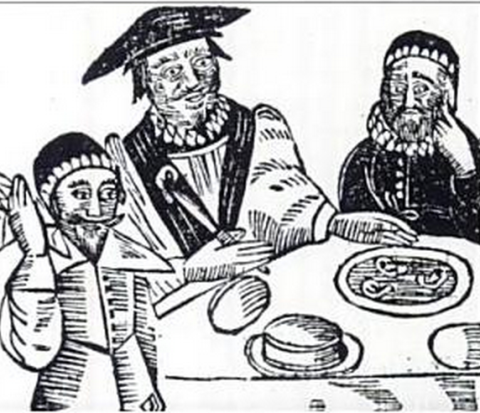Several persons were ordered before an archdeacon’s court, including the attending midwife, Francis Fletcher. She testified that:
“Thomas Salmon, a servant, did come to the labour of the said Rymel’s wife… disguised in women’s apparel… she confesseth he did come into her chamber some six hours after she had been delivered so disguised, but she sayeth at his first coming that she knew him not… and was no way privy to his coming or to his disguise.”
Testimony from other witnesses revealed that Salmon was a young servant employed by Elizabeth Fletcher, daughter-in-law of the midwife. According to Salmon’s own testimony, his mistress had encouraged him to cross-dress and attend Mrs Rymel’s lying-in, suggesting there would be food, drinking and “good cheer”. After outfitting him in women’s clothing, Fletcher took him to the Rymel house and told other women he was “Mrs Garrett’s maid”.
Salmon admitted staying only briefly in Mrs Rymel’s bedroom – but he remained in women’s clothes for another two hours. His testimony was confirmed by Elizabeth Fletcher, who admitted helping Salmon enter the room as “a jest”. The archdeacon’s court absolved the midwife of any blame, ordered Elizabeth Fletcher to apologise, and handed Salmon a strong talking-to and a formal penance.
Source: Oxford Archdeaconry Archives, 1633, fol.75, 151. Content on this page is © Alpha History 2019-23. Content may not be republished without our express permission. For more information please refer to our Terms of Use or contact Alpha History.

